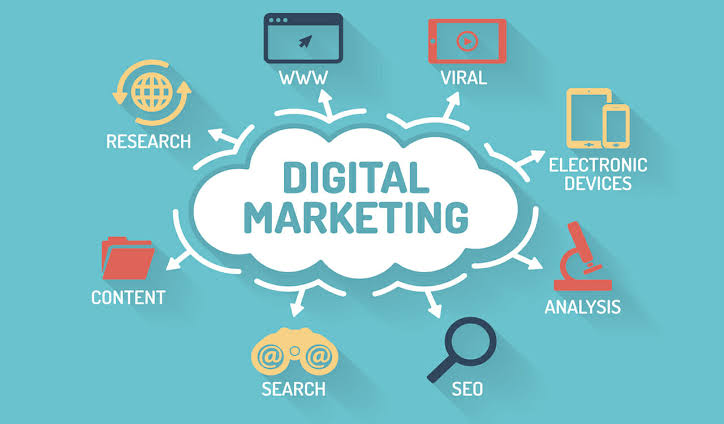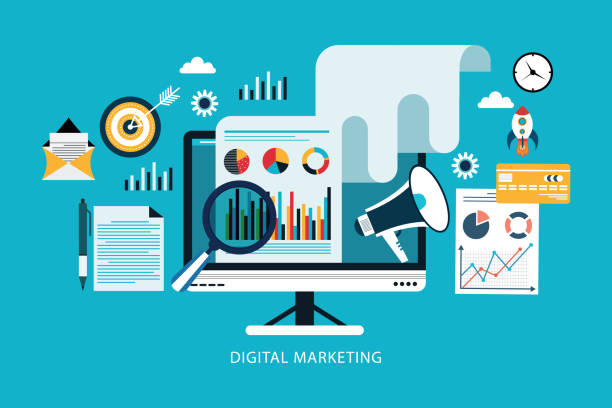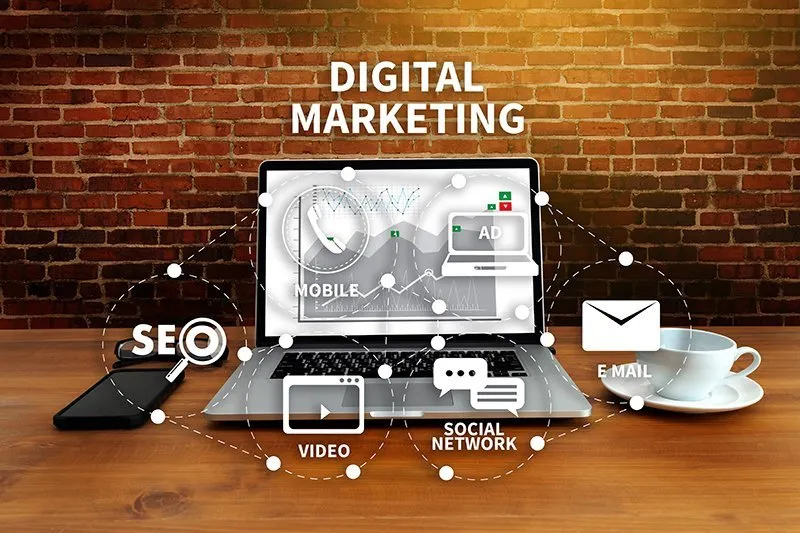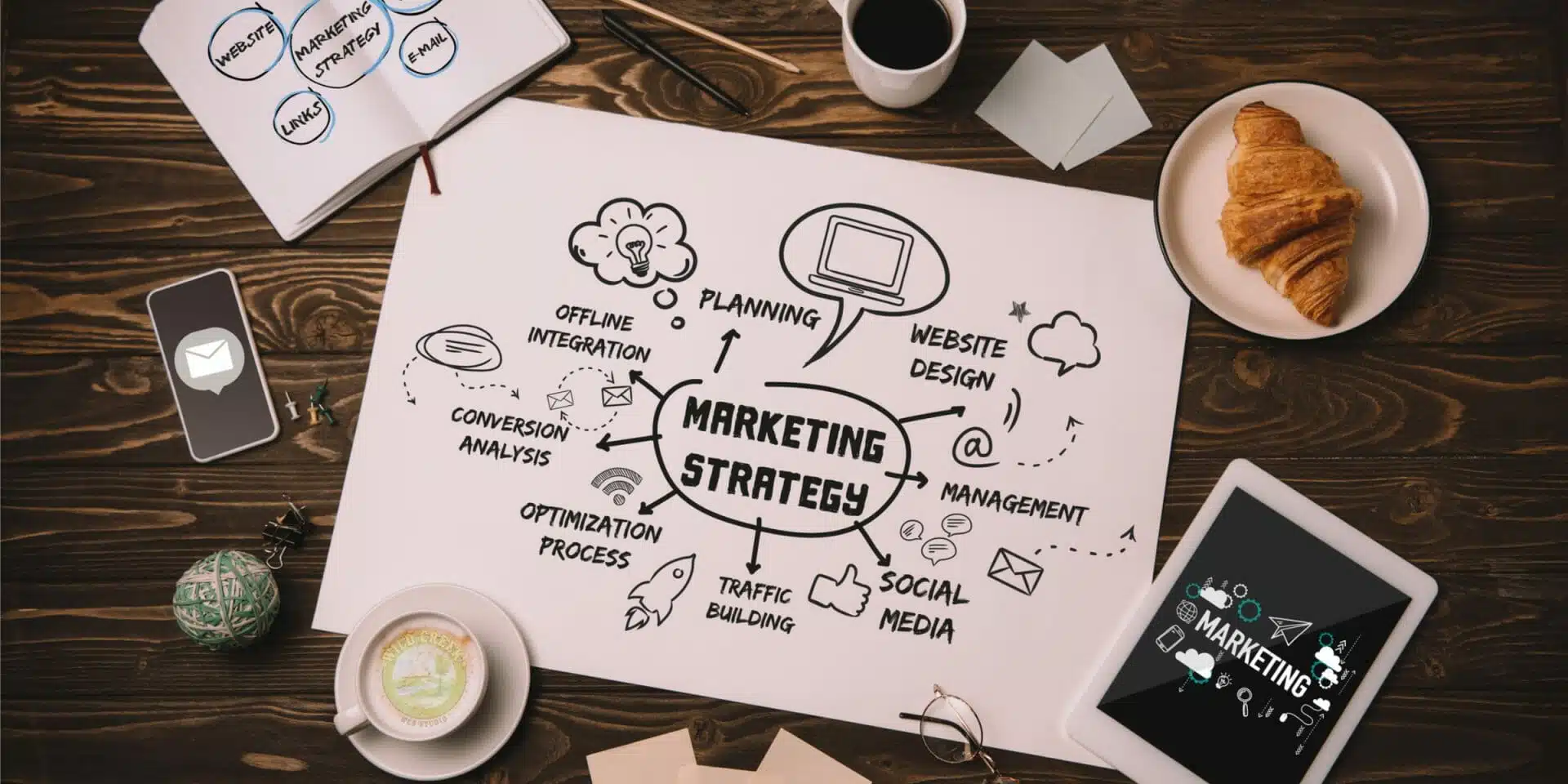Digital Marketing Essentials for Business Growth
Leveraging digital channels effectively to drive sustainable business growth in the modern marketplace
Understanding the Digital Marketing Landscape
In today's hyperconnected world, digital marketing has evolved from a supplementary business function to an essential growth driver. With consumers spending an average of 6-7 hours online daily, businesses that effectively leverage digital channels gain a significant competitive advantage. Digital marketing provides unprecedented opportunities for businesses of all sizes to connect with their target audience, build brand awareness, and drive measurable growth.
Audience Reach
Connect with targeted audiences regardless of geographic location
Cost Efficiency
Lower entry barriers compared to traditional marketing channels
Measurability
Precise tracking of campaign performance and ROI
However, the digital marketing landscape is constantly evolving, with new platforms, algorithms, and consumer behaviors emerging regularly. Staying informed about these changes and adapting strategies accordingly is crucial for sustainable growth.
Essential Digital Marketing Channels for Business Growth
1. Search Engine Optimization (SEO)
SEO remains the foundation of digital visibility, enabling businesses to capture high-intent traffic from search engines. A well-executed SEO strategy involves:
- Keyword research and optimization: Identifying and targeting terms your audience is actively searching for
- Technical SEO: Ensuring your website meets search engine requirements for indexing and ranking
- Content strategy: Creating valuable, relevant content that addresses user search intent
- Link building: Acquiring quality backlinks that enhance domain authority
- Local SEO: Optimizing for location-based searches for businesses with physical locations
Businesses that invest in SEO typically see compounding returns over time as their organic visibility increases, reducing dependency on paid advertising.
2. Content Marketing
Content marketing serves as the cornerstone of digital engagement, providing value to audiences while establishing brand authority. Effective content marketing strategies include:
- Blog posts and articles: Addressing industry challenges and providing actionable insights
- Video content: Engaging audiences through visual storytelling and demonstrations
- Podcasts: Reaching audiences during commutes or other hands-free moments
- Infographics: Simplifying complex concepts through visual representation
- Case studies: Demonstrating real-world applications and results
The key to content marketing success lies in consistency, quality, and alignment with audience needs and business objectives.
Content Marketing Strategy Framework
Content Pillars
- Industry insights and trends
- How-to guides and tutorials
- Customer success stories
- Product/service education
- Thought leadership pieces
Distribution Channels
- Company website/blog
- Email newsletters
- Social media platforms
- Industry publications
- Content syndication networks
3. Social Media Marketing
Social media platforms offer unprecedented opportunities for brand building, audience engagement, and direct customer communication. Effective social media marketing requires:
- Platform selection: Focusing on channels where your target audience is most active
- Content strategy: Creating platform-specific content that resonates with users
- Community management: Actively engaging with followers and building relationships
- Paid social advertising: Leveraging advanced targeting capabilities to reach specific audience segments
- Analytics: Tracking performance metrics to optimize strategy and ROI
4. Email Marketing
Despite being one of the oldest digital marketing channels, email continues to deliver the highest ROI for many businesses. A successful email marketing program includes:
- List building: Ethical and effective ways to grow your subscriber base
- Segmentation: Dividing subscribers based on demographics, behavior, and interests
- Personalization: Tailoring content to individual preferences and behaviors
- Automation: Setting up triggered emails based on specific customer actions
- Testing and optimization: Continuously improving performance through A/B testing
5. Paid Advertising
Paid digital advertising provides immediate visibility and precise targeting capabilities. Key paid channels include:
- Search engine marketing (SEM): Bidding on keywords to appear in search results
- Display advertising: Visual ads shown on websites within an ad network
- Social media advertising: Promoted content on social platforms
- Video advertising: Pre-roll, mid-roll, or standalone video ads
- Retargeting: Showing ads to users who have previously interacted with your brand
Data-Driven Marketing for Business Growth
The ability to collect, analyze, and act on data is what separates successful digital marketing strategies from ineffective ones. Implementation of data-driven marketing involves:
Analytics Implementation
Setting up proper tracking tools like Google Analytics, social media insights, and CRM systems to capture relevant data points across all customer touchpoints.
Key Performance Indicators (KPIs)
Identifying and monitoring metrics that directly relate to business objectives:
| Business Objective | Relevant KPIs |
|---|---|
| Brand Awareness | Impressions, Reach, Website Traffic, Social Media Following |
| Lead Generation | Conversion Rate, Cost Per Lead, Landing Page Performance |
| Sales Growth | Revenue, Average Order Value, Customer Acquisition Cost |
| Customer Retention | Repeat Purchase Rate, Customer Lifetime Value, Churn Rate |
Testing and Optimization
Implementing a continuous improvement process through:
- A/B testing: Comparing different versions of content, ads, or landing pages
- Conversion rate optimization (CRO): Systematically improving user experience to increase conversions
- Attribution modeling: Understanding which channels and touchpoints contribute most to conversions
Creating an Integrated Digital Marketing Strategy
While individual digital marketing channels can drive results, the most successful growth strategies integrate multiple channels into a cohesive customer journey.
Strategy Development Framework
- Set clear, measurable business objectives aligned with overall company goals
- Define your target audience through detailed persona development
- Map the customer journey from awareness to advocacy
- Select appropriate channels for each stage of the journey
- Create a content calendar that addresses different audience needs
- Implement tracking systems for comprehensive performance measurement
- Establish a testing schedule for continuous optimization
- Allocate budget based on performance and business priorities
The most effective digital marketing strategies are not static but evolve based on performance data, market changes, and shifting business priorities.
Emerging Trends Shaping Digital Marketing
Staying ahead in digital marketing requires awareness of emerging trends that may impact business growth strategies:
Artificial Intelligence and Machine Learning
AI-powered tools are revolutionizing personalization, predictive analytics, and automation in digital marketing, enabling more efficient and effective campaigns.
Voice Search Optimization
As voice assistants become ubiquitous, optimizing content for conversational queries and featured snippets is becoming increasingly important.
Video Marketing Dominance
Video continues to outperform other content types across platforms, with short-form video driving particularly high engagement rates.
Privacy-First Marketing
With increasing privacy regulations and the phasing out of third-party cookies, first-party data collection and contextual targeting are becoming more crucial.
Measuring Digital Marketing ROI
For business growth, it's essential to accurately measure the return on investment from digital marketing efforts. This involves:
Attribution Modeling
Implementing multi-touch attribution models that accurately reflect how different channels contribute to conversions across the customer journey.
Customer Lifetime Value (CLV) Analysis
Looking beyond initial conversion metrics to understand the total value a customer brings over their entire relationship with your business.
Cost Analysis
Comprehensive tracking of all costs associated with digital marketing, including direct advertising spend, technology investments, and personnel costs.
FAQ: Digital Marketing for Business Growth
How quickly can I expect results from digital marketing?
Digital marketing results vary by channel. Paid advertising can drive immediate traffic, while SEO and content marketing typically show compounding results over 3-6 months. For sustainable business growth, a balanced approach combining short and long-term strategies is recommended.
What budget should I allocate to digital marketing?
Budget allocation depends on your industry, competition, and growth goals. Most growing businesses invest 7-12% of revenue in marketing, with digital typically comprising 50-70% of the total marketing budget. Start with channels that align with your business objectives and gradually expand based on performance.
Should I handle digital marketing in-house or outsource?
This depends on your resources, expertise, and strategic needs. Many businesses adopt a hybrid model, keeping strategy and some channels in-house while outsourcing specialized functions like SEO, PPC, or content creation. The most important factor is ensuring whoever handles your digital marketing has clear goals and accountability.
How can small businesses compete with larger competitors in digital marketing?
Small businesses can effectively compete by focusing on niche targeting, local SEO, personalized customer experiences, and content that showcases unique expertise. Additionally, agility in decision-making and the ability to quickly adapt strategies can give small businesses an advantage over larger competitors with more complex approval processes.
Which digital marketing channels offer the best ROI?
Email marketing consistently shows the highest ROI across industries, followed by SEO and content marketing. However, the optimal channel mix depends on your specific business, target audience, and objectives. The best approach is to test multiple channels, measure results, and allocate resources based on performance data.
Ready to transform your business growth through digital marketing?
Al Mithaq Institute offers comprehensive Digital Marketing training programs designed to equip professionals with practical skills and strategic insights for driving business growth.
Explore Our Courses






